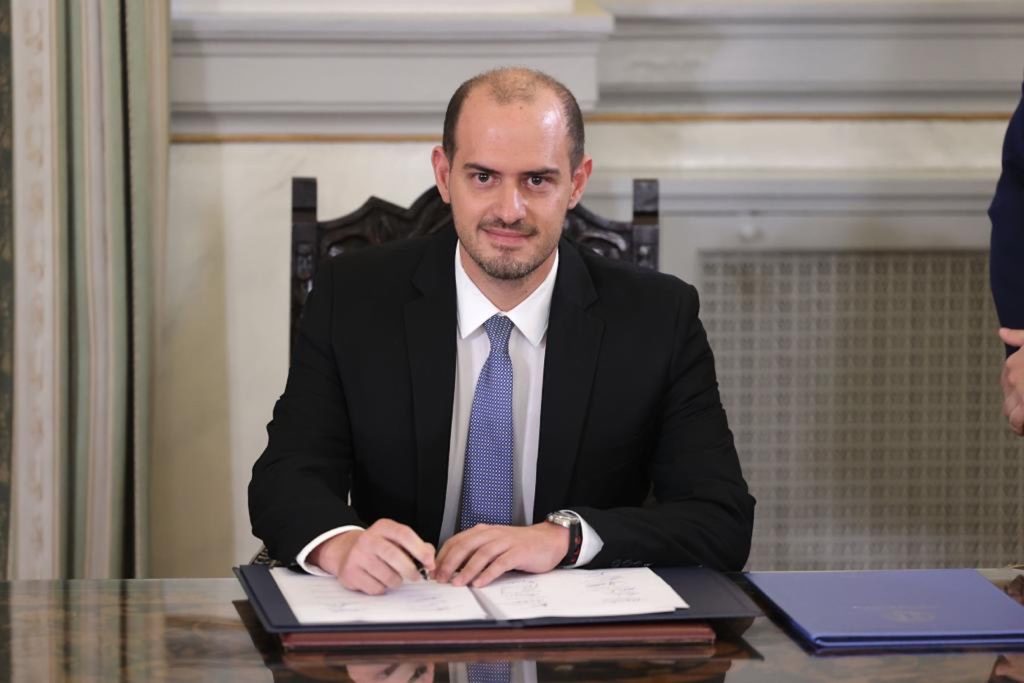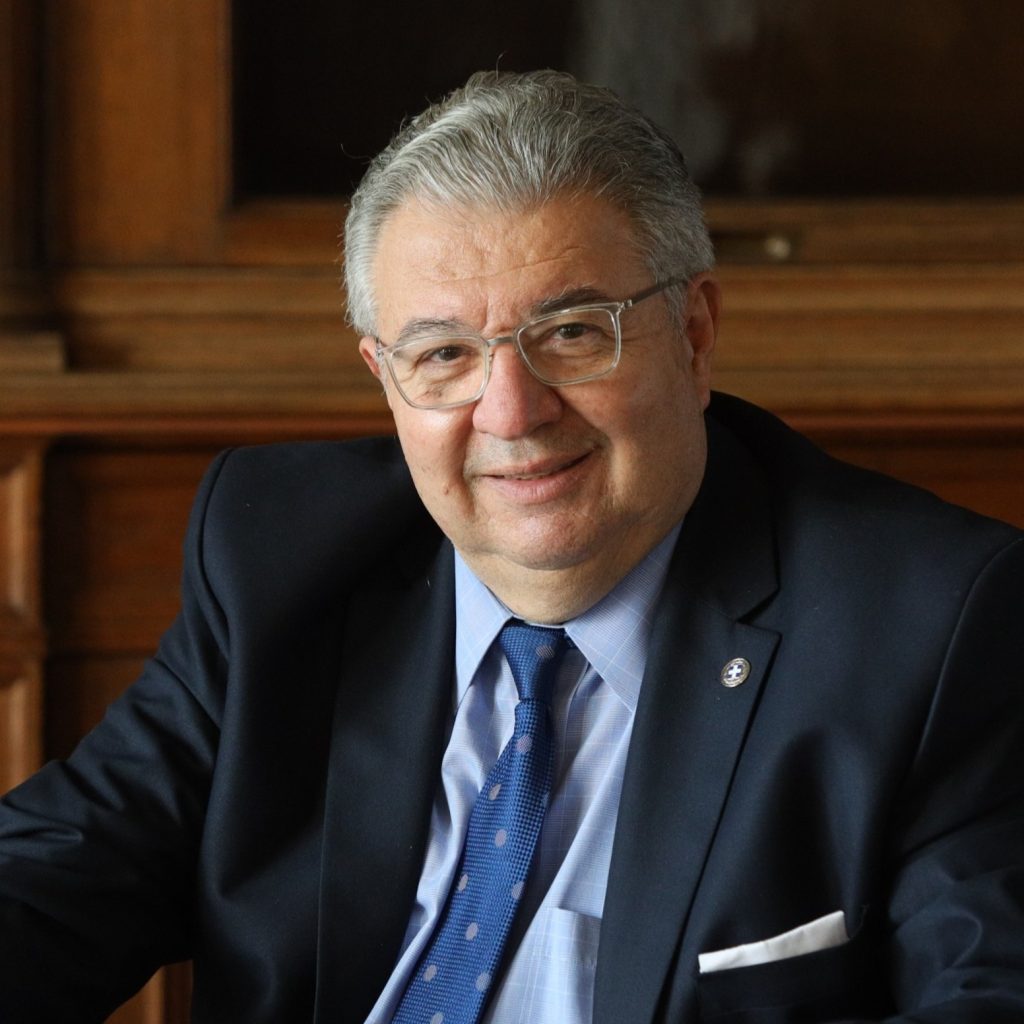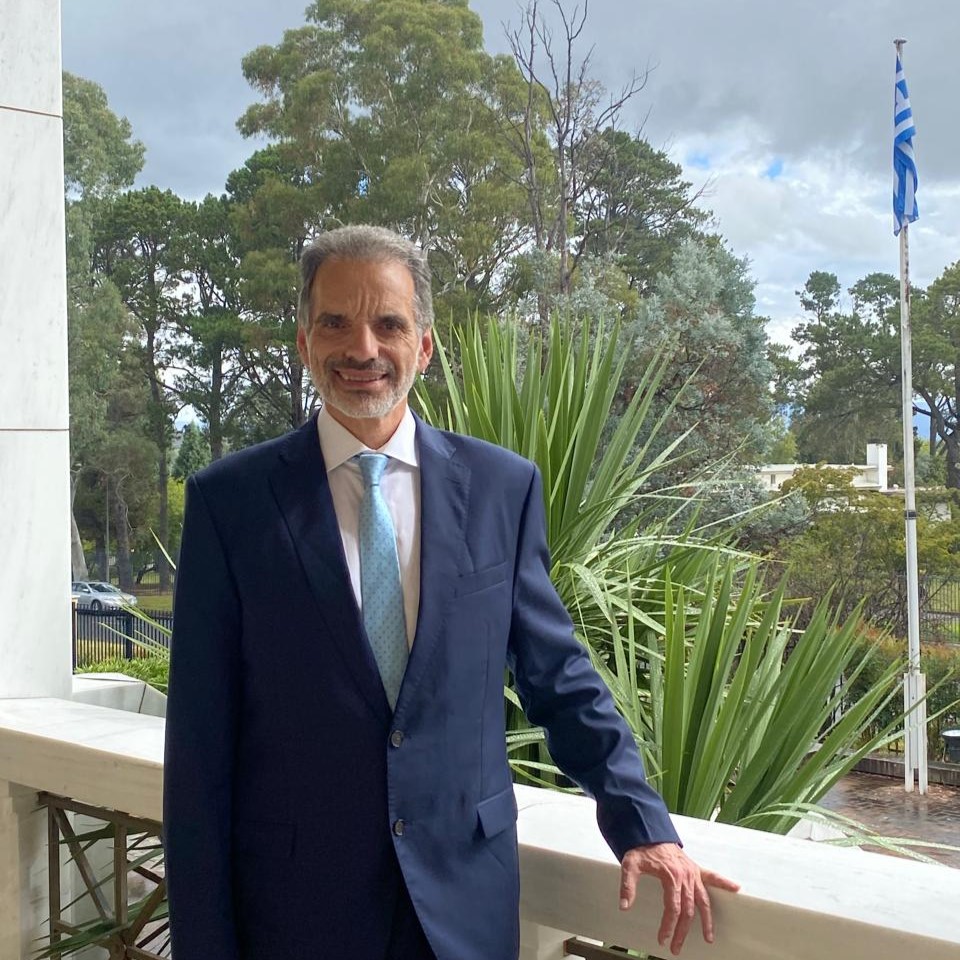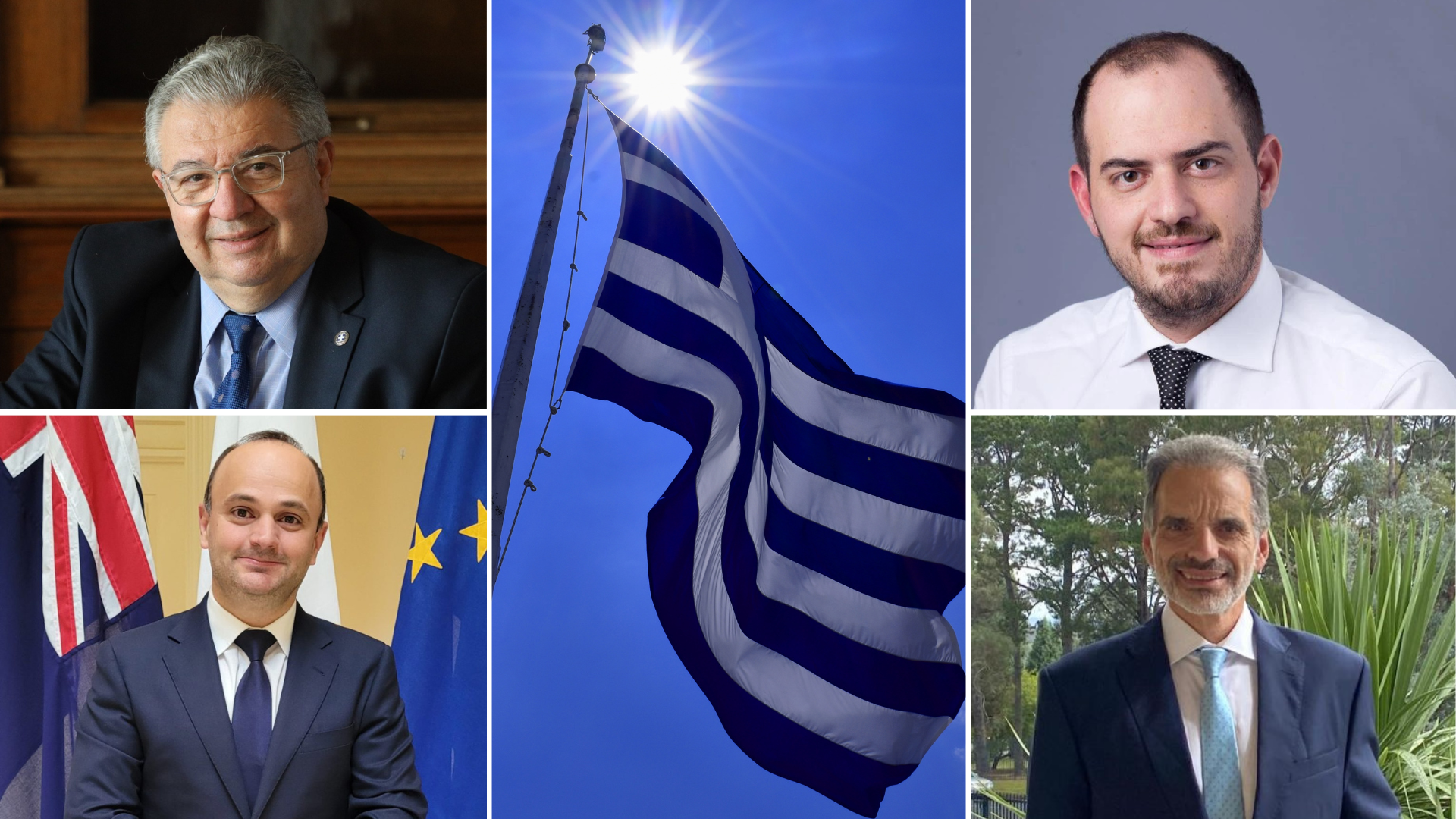Greek and Cypriot politicians and diplomats have issued messages to Australia’s Greek diaspora ahead of the double celebration on March 25 of Greek Independence Day and the Annunciation of the Theotokos.
Message by Greece’s Deputy Foreign Affairs Minister Giorgios Kotsiras

Dear compatriots,
Greek Independence Day is a day of honour for all Greeks worldwide and a day of celebration for the Orthodox faith. Although more than two centuries have passed, the example of our ancestors is still inspiring. The glorious battle of the Greek revolutionaries defending our freedom, our orthodox faith and our country’s national sovereignty is much more than a historical event. It is our collective memory, it is the solid proof that solidarity and unity can lead us to overcome any challenge.
The Greek Revolution has influenced the public debate and the intellectuals of the time, stimulating the Philhellenism movement and highlighting the struggle of a great people with great strength. Guided by the dream of a free homeland, Hellenism as a whole had a dynamic presence to the national effort, protecting our language, our culture and our faith. And it is true that the Greek Diaspora has always supported our country, contributing decisively to every difficulty.
March 25th, coinciding with the Feast of the Annunciation, is the anniversary of the national rebirth, it is the timeless and always relevant truth of Hellenism. It is a national lesson not only about our common past, but also about a new and clear vision for the future. Hellenism, universal and indivisible, must move forward, setting and achieving common goals.
Happy National Independence Day to all!
Message by Greece’s Secretary General for Greeks Abroad, John Chrysoulakis

Dear Compatriots,
We are celebrating this year, as every year, the anniversary of March 25, 1821. We are celebrating the anniversary of a historical event which is a milestone for the past, present and future of Hellenism everywhere.
At the core of the celebrations for our national day is, at the same time, the Annunciation of the Theotokos and the beginning of the Greek Revolution. This historical event, a synthesis of the basic elements of our national identity, is a lesson in modern history which preserves and awakens our common national memory.
It is historically undeniable that the contribution of the Greeks of the diaspora to the Greek Revolution of 1821 was decisive. We can, therefore, easily conclude that this celebration is always a reminder of the role and dynamics that the diaspora can play today – just as 203 years ago – in strengthening and multiplying our country’s capabilities in the present, but above all, in the future.
It is known that under the oppression of the Turks, many Greeks were forced to emigrate. However, they carried the Greek spirit and Greek education around the world and created Greek communities that functioned as centres of national self-awareness throughout Europe: Vienna, Bucharest, Odesa, Trieste, Constantinople and many other cities developed into powerful centres of the Greek community, where the nation’s desire for freedom was cultivated.
Moreover, the Greeks of the diaspora realised very early on that freedom was not an exclusive matter for Greeks living under the Turkish yoke. They themselves accepted much of this responsibility, making it clear that Hellenism of the diaspora would always be one of the most important forces of the nation.
Today, the National Day brings together all Ecumenical Hellenism, which responds united to the dictate of history, claiming its role in the Southeast Mediterranean, Europe, and around the world.
It is everyone’s wish that this double celebration of Greece and Hellenism will once again be a point of reflection on the past and vision for the future. A future common to Greeks everywhere, of the diaspora, but also of friends of Greece. Long live Greece!
Message by the Ambassador of Greece in Australia, Stavros Venizelos:

Dear friends, fellow compatriots, Greeks in Australia,
March 25, 1821, the day of the Annunciation of the Theotokos, marks the milestone for the rebirth of the Greek nation and the beginning of the modern course of Hellenism. The Revolution of 1821 succeeded, through particularly adverse circumstances, in paving the way towards national integration and statehood. Today Greece is a modern democratic state, at the core of a united Europe, a force of stability in its region.
This anniversary is celebrated, rightly so, with splendour wherever Greeks live and create, everywhere in the world. This day holds a special place in Australia. It symbolises your continuous bond to Greece, the love and nostalgia with which you cherish the homeland. It is no coincidence that all my acquaintances, during my so far short tenure here, express their enthusiasm and strong emotions about this day.
I feel confident that this year’s Greek Independence Day will be, once again, a source of joy and pride for you and your beloved ones, an occasion for your families, the younger generations of Greek-Australians, to reunite with Greece. Χρόνια Πολλά!
Message by the High Commissioner of Cyprus in Australia, Antonis Sammoutis:

Dear compatriots,
The double celebration of the Annunciation of the Theotokos and the Rebirth of the Nation, celebrated with splendour by Greeks everywhere, becomes every year a source of joy, hope and national uplift for all of us. Against the logic of numbers and probabilities, against the hostile climate cultivated by the Holy Alliance and against the admonitions of many of the notables of Morea and Roumelis, a handful of Greeks, armatoloi, the rebellious Maniots and the proud shipowners of Hydra, Poros and Spetses, were the first to raise the banner of the Revolution, which soon spread and reached as far as Epirus and Macedonia and as far as the Aegean islands and Crete.
The Turkish oppressors, unable to suppress the Great Rising, soon engaged in massacres of defenceless Greeks in places where the Revolution could not easily reach, such as Polis, the coast of Asia Minor, Chios, Psara and Cyprus. The death toll paid by the nation during the nine heroic years of the Struggle was heavy and many were the areas that, while fighting hard, temporarily remained outside the first Greek state. However, the recognition of a small but independent Greece, in Sterea, the Peloponnese and the Cyclades, in 1830, after four hundred years of slavery, was the reward of the heroism and self-sacrifice shown by our ancestors. Soon, this first Greek state became a pole of attraction for all other enslaved Greeks. Another ninety years would pass until its boundaries extended to Epirus, Macedonia and Thrace, Crete and the Eastern Aegean. The last place where the Greek flag was raised, in 1947, was the Dodecanese.
Two reflections come to mind when I recall the lessons of history from those glorious years. One, of course, is of particular concern, since it is related to the division that prevailed and the civil strife, especially after the first year of the Uprising. Our motto and experience should always be Greece united, never defeated! The other reflection is more optimistic, since it is linked to the radiance of our civilisation over the centuries, to the liberal and democratic spirit of our people that does not tolerate tyrants and inspires all other nations over time. It is the radiance and glamour of Ancient Greece that caused the Philhellenic current and finally pushed the united fleet of England, France and Russia to crush Ibrahim at Navarino.
Since then, Greece has chosen permanent allies with whom it fought common battles whenever needed. Natural allies of Hellenism have been and remain democratic countries, countries that believe in freedom as the supreme good that ensures happiness, as defined by Pericles and as praised by our national poet Dionysios Solomos. Among the free and democratic countries, of course, is the hospitable Australia, which received hundreds of thousands of Greeks and Cypriots, a country with which we share common struggles and common destinies.
Dear friends,
Cyprus, far from the metropolitan area of Hellenism, was forced out of the revolution. However, this did not prevent the Turkish authorities in July 1821 from slaughtering Archbishop Kyprianos, the bishops, many priests and hundreds of notables in order to intimidate its population and discourage the expansion of the Revolution. Greece never forgot Cyprus and already in 1830, the first Greek Governor, Ioannis Kapodistrias, included it in a memorandum he submitted to the European powers, among the areas with a large majority Greek population, which he claimed to incorporate into the small Greek state. And it could not have been otherwise, since the ancestors of his mother, Adamantina Gonemi, were Cypriots while he himself knew that hundreds of Cypriot fighters took part in the battles that took place throughout Greece.
As Cypriots, we have always considered the heroes of 1955-1959 as continuators of this Great Struggle. The fighters who saw the British colonialists betray the promises they made and were forced to take up arms for their freedom. New pages of heroism and national pride were written for four years in the mountains of Cyprus. And despite the sacrifices of the heroes, the machinations of Britain and Turkey blocked the way to union. Greece and Cyprus will finally come together in the European Union in 2004, and have been walking side by side for the past 20 years ever since.
At the same time, however, we do not forget that this year marks 50 years of occupation of the northern part of our country by Turkey. 50 years is a long time and that is the message we should get across to the entire international community. The new effort of the UN Secretary-General’s Envoy, launched at the beginning of the year, certainly raises new hopes and expectations. It is certainly too early to judge whether the Turkish side is willing to abandon once and for all efforts to partition our country. What matters most is our commitment to the goal of reunification and the mobilisation of all friendly forces that are firmly interested in peace and security in our region. And we are well aware that Australia has a special place among these powers.
